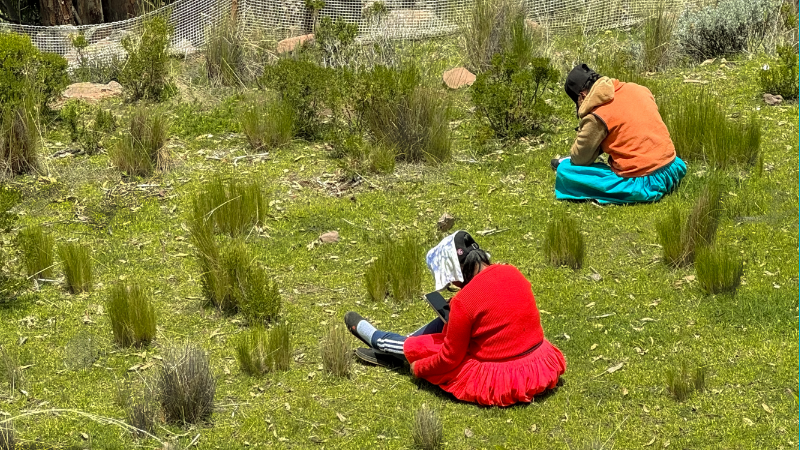Making sense of our connected world

Digital trouble
We are constantly upset about our digital helpers. That should give us food for thought.
When was the last time you got digitally annoyed? When Skype refused to work right before an important interview? When Spotify stuttered through your playlist? When Google Maps kept guiding you back into a traffic jam? While others float weightlessly through their digital clouds, you wave around on your smartphone like an old analogue. Am I gonna throw it against the wall or not?
Anger builds, the terminal mutates into a person: “What does he do now?” /”He just doesn’t want that.” The term “command” as used in search commands is misleading: yelling at them is useless. When everything goes wrong, a friend is sure to bring up the moon landing: “We brought people to the moon. 50 years ago. And I can’t send an e-mail here?” What does all this digital rage tell us?
The expectation crisis: Ain’t nobody got time for that!
Just a few years ago we had to dig through libraries for hours to get information. Today we pull out our smartphone and start googling. But woe be unto that phone if this takes a fraction of a second longer than usual. Ten seconds becomes ten minutes. We’re losing our nerve. The innovation researcher Jessie Stettin calls this “expectation crisis”. Our expectations have grown so fast that no reality, not even the digital one, can keep up. Stettin quotes a study: “Between 2006 and 2012 our patience for the loading time of web pages fell from 4 seconds to 250 milliseconds.”
We are living in an incredibly exciting time, in which digital innovations are catapulting our lives forward like never before. Of course, there can also be damp squibs, although there is constant talk of “unstoppability”. Subjectively, we’re not moving fast enough. Once we have learned this, we also lack patience in other fields of interaction. In interpersonal relationships, for example. They actually need a lot of patience. Growing impatience makes us very thin-skinned and maybe quite lonely in the end. In relationships one cannot complain about lost “valuable one-hundredths”. How about making the next digital jam an exercise in patience?
Solutionism: Fortunately, there is no solution!
Another source of digital annoyance is “solutionism”: If we only have the right tool, everything will resolve itself, smoothly. For every problem, an app! This is a dangerous misconception, says Internet researcher Yevgeny Morozov. The urge to eliminate friction, always seeking “efficient solutions”, leads directly to the algorithmic dictatorship, in which it is not the enlightened citizen who determines the future, but Silicon Valley. Solutions turn out to be problems. Instead, the cursing user should be pleased: With every digital disappointment that the sh… does not work, one point goes to the person and not to the code. Every fit of rage takes us a step away from consuming solutions blindly and a little towards the search for our own ways. The future is not a one-click solution. It must be shaped by our participation. Google Maps shows a detour on foot to the Lake Steinhude. How interesting. How could I solve the problem myself?
Discourses on power: Who wants to be “digitally lost”?
Quite honestly, the source of digital annoyance often sits in front of the screen. We are all overwhelmed by digital change. But nobody likes to admit it. “You don’t know how to defragment your hard drive?”, “All you have to do is reboot. Idiot-proof, isn’t it?”. Knowledge of power is pretended. No one wants to be left behind digitally. How often is most of the anger about oneself, of “Why don’t I understand that?”
It takes true greatness to say “I don’t understand”. Chinese Internet billionaire Jack Ma recently admitted this on the subject of blockchain. Instead, most people adorn themselves with labels like “digital native” as if this were the insignia for a secret superhumanity. The digital discourse is a discourse of power and intimidation. The feeling of powerlessness leads to anger instead of mutual help.
That’s very sad. The investor Ben Evans calculates why. While we are moving from 1.5 billion PCs to 3 billion mobile devices today to 5 billion in the future, digital education is becoming increasingly important. We invent devices that are increasingly personal and important because more and more is at stake with them, and we also give them more and more to people who have never used a computer before. In fact, many of the “next billion” have never owned an electronic device, except perhaps a radio. It’s too bad if we’re just quietly annoyed instead of helping each other.
What’s all the rage for? An attitude that is more independent, patient and helpful not only asserts the human aspect of our technicised world with its expectations of salvation, but is also good for the nerves. Our anger gives us clues as to what it means to be human and how we can remain human. Because while everything becomes digital, we will continue being annoyed until the end of our days – both online and in real life.
Hans helps BrightHouse, a subsidiary of BCG, to find companies their deeper meaning. He also writes for Deutschlandfunk radio and is editor of Transform magazine. A shortened version of this article was first published by Deutschlandfunk Kultur.
This post represents the view of the author and does not necessarily represent the view of the institute itself. For more information about the topics of these articles and associated research projects, please contact info@hiig.de.
Research issues in focus
Sign up for HIIG's Monthly Digest
and receive our latest blog articles.
Exploring digitalisation: Indigenous perspectives from Puno, Peru
What are the indigenous perspectives of digitalisation? Quechuas in Peru show openness, challenges, and requirements to grow their digital economies.
Diamond OA: For a colourful digital publishing landscape
The blog post raises awareness of new financial pitfalls in the Open Access transformation and proposes a collaborative funding structure for Diamond OA in Germany.
Disinformation: Are we really overestimating ourselves?
How aware are we of the effects and the reach of disinformation online and does the public discourse provide a balanced picture?



